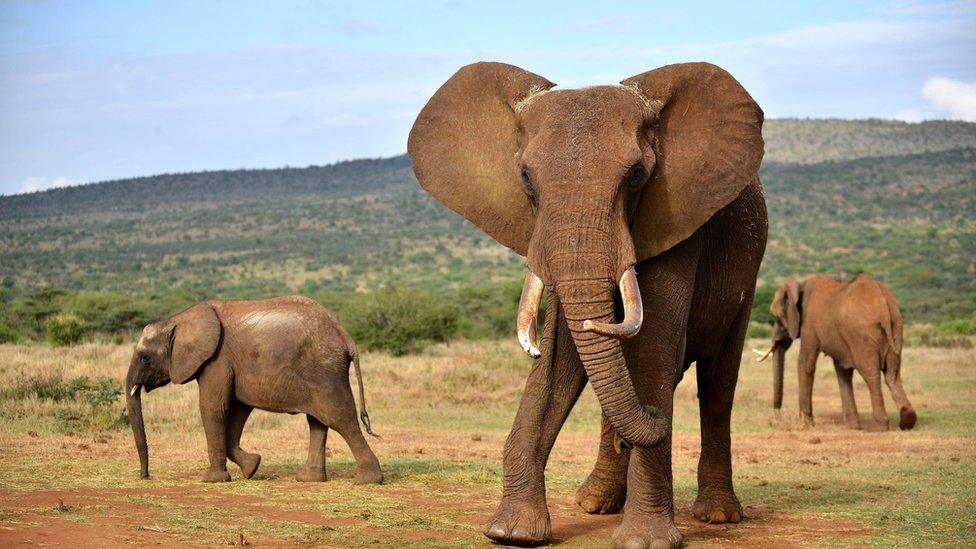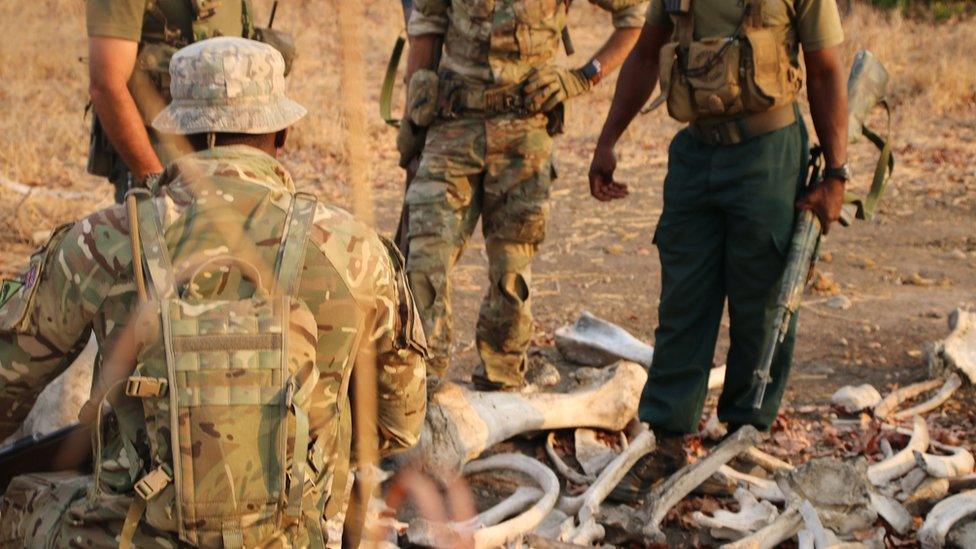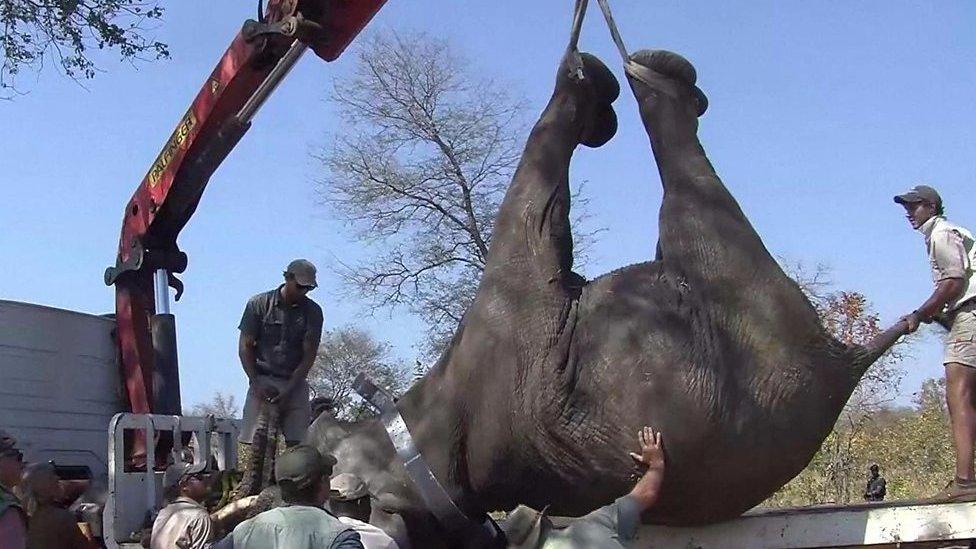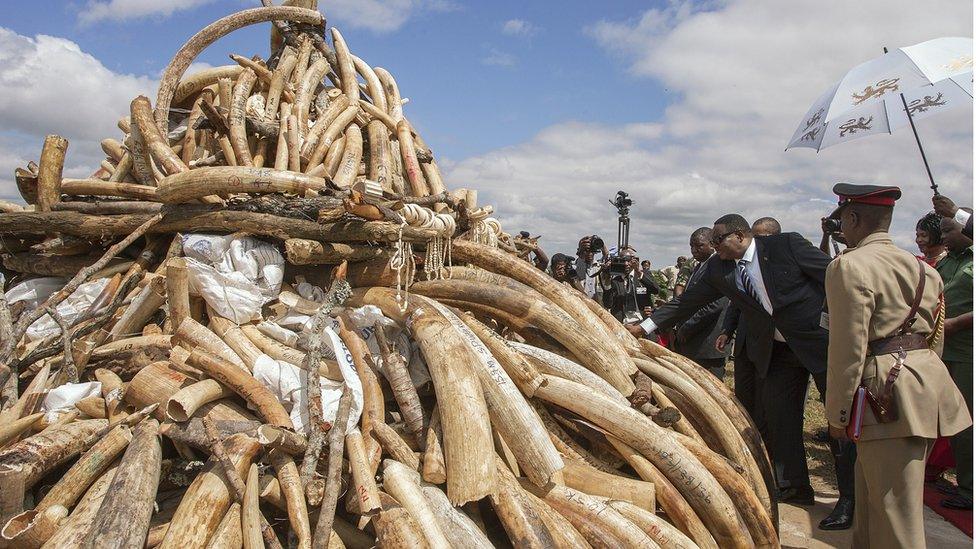British troops aid Malawi wildlife anti-poaching fight
- Published

Elephants are among a number of animals under threat from poaching in Malawi
British soldiers are to be deployed to Africa to boost the fight against illegal wildlife poaching.
The force will train rangers in tracking, infantry, bushcraft and information analysis skills.
Defence Secretary Gavin Williamson announced the expansion of the UK's counter-poaching training at two parks in Malawi - doubling the number of rangers mentored by soldiers to 120.
Mr Williamson said the "cruel" poaching trade puts "majestic" animals at risk.
He praised the British armed forces for "playing their part in putting an end to this sickening and illegal industry".
"By providing training and mentoring to the park rangers, they will form a skilled network to ensure that the world's precious species are here for generations to come," he added.
Animals under threat include elephants, rhinos and lions.
'Successful' partnership
The deployments to Nkhotakota and Majete Wildlife Reserves will begin in May, following a successful pilot scheme in Liwonde National Park last year,
Park manager Craig Reid said the training - held in conjunction with conservation non-profit African Parks - helped provide "sustainable law enforcement" to an area once overrun by poaching.
The practice is estimated to have halved the country's elephant population from 4,000 in the 1980s to 2,000 in 2015.

Gavin Williamson announced the expansion of the UK"s counter-poaching training to two parks in Malawi, doubling the number of rangers mentored by British soldiers to 120
Brighton Kumchedwa, director of National Parks and Wildlife in Malawi, expressed confidence in the renewed partnership with British forces.
"We are really pleased that the British Army will be returning to Malawi to work in partnership with the Malawian authorities and African Parks on counter-poaching activities.
"This will build on the success of their previous deployment and ensure that life becomes increasingly difficult for those intent on wildlife crime in Malawi," he said.
- Published31 July 2017

- Published18 September 2015

- Published14 June 2017
